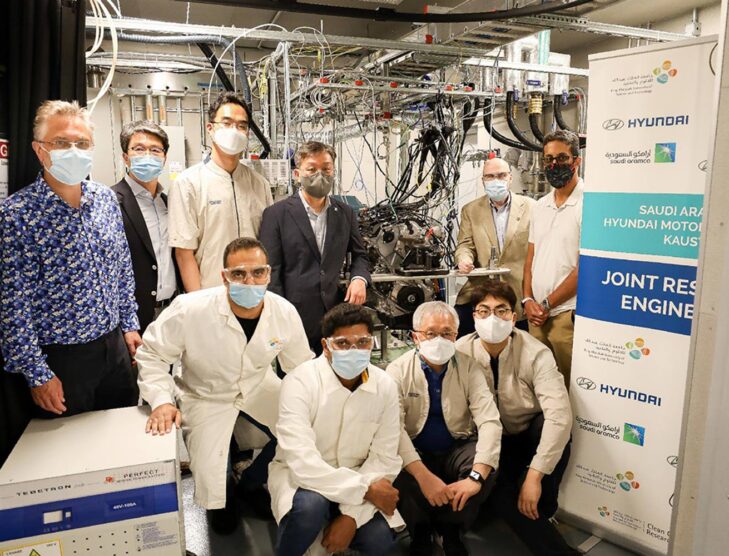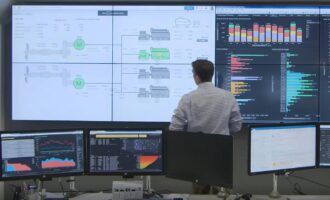
Hyundai Motor and Aramco to develop advanced fuel for SI engine
South Korean automaker Hyundai Motor Group will collaborate with the Saudi Arabian Oil Company (Aramco) and King Abdullah University of Science and Technology (KAUST) jointly to research and develop an advanced fuel for an ultra lean-burn, spark-ignition engine that aims to lower the overall carbon dioxide emissions of a vehicle.
Hyundai Motor Group is conducting various R&D activities to minimize greenhouse gas emissions from internal combustion engine (ICE) vehicles during its transition to battery electric vehicles (BEV) and fuel cell electric vehicles (FCEV).
BEVs and FCEVs will be Hyundai Motor Group’s ultimate technologies to achieve carbon neutral mobility, while eco-friendly ICE technology that combines eco-friendly fuel and ultra-lean burn engine will be the key to effectively reduce greenhouse gas emissions during the transition to electric vehicles, said Alain Raposo, executive vice president, Hyundai Motor Group, who leads the automaker’s Electrified Propulsion Technical Unit.
Unlike conventional fuel manufacturing, e-fuels are synthesized from green hydrogen—produced by water electrolysis using renewable electricity—and carbon dioxide, resulting in 80% lower lifecycle emissions. The ultra-lean burn engine is an eco-friendly technology that increases thermal efficiency and fuel economy compared to conventional engines leading to further reduction of greenhouse gases.
Over the next two years, Hyundai Motor Group, Aramco, and KAUST will collaborate to research and potentially develop an advanced fuel formulation for use in combination with a novel combustion system. Hyundai Motor Group, with its automotive and technology leadership, will provide a state-of-the-art, ultra-lean-burn gasoline engine for use by the research team.
Aramco aims to leverage its advanced fuels technology carefully to design an effective fuel formulation. KAUST will oversee the modeling and verification of technologies, including engine testing, by providing state-of-the-art combustion research center. The collaboration is expected to create synergies leveraging each participant’s expertise.
The joint study aims to verify by how much greenhouse gas emissions can be reduced when e-fuel is used in hybrid electric vehicles instead of conventional fuel. In addition, the joint R&D aims to confirm numerically the effect of reducing greenhouse gas emissions through simulation and engine testing.
Hyundai Motor Group expects to achieve carbon neutrality in an effective way by significantly reducing carbon emissions generated by conventional petroleum fuels through the new engine technology.
“As hybrid electrical vehicles are rolled out, the real challenge now lies in making strides with optimal fuels and exceptional combustion systems. The Aramco team provides fuel design and blending know-how to improve Hyundai Motor Group engine combustion performance and the outcome could lead to the application of synthetic e-fuels. This is a space in which we are pushing boundaries and we are excited to be part of it,” said Ahmad O. Al-Khowaiter, Aramco’s chief technology officer.
The tests will be conducted by researchers in the Clean Combustion Research Center (CCRC) at KAUST.









